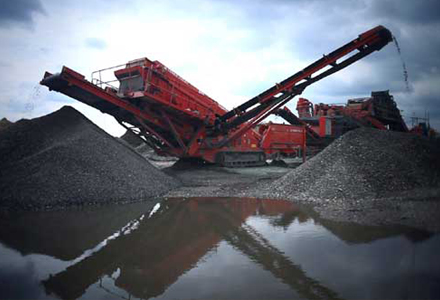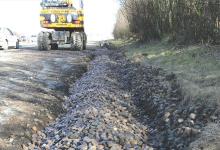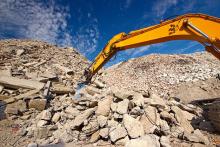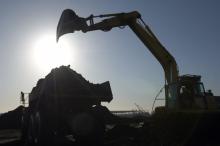
Aims to increase recycling rates in Europe are being supported by the European Recycled Aggregates Platform. Claire Symes reports on this initiative
Increasing rates of recycling across Europe is a key EU ambition but reaching the target of 70% may be a challenge for some member states. Supporting regulators, quarry producers and customers in achieving this goal is the main task of the European Recycled Aggregates Platform.
The organisation was set up 18 months ago to bring together all the entities within the aggregates sector that are involved in recycling. The platform draws together the European Ready Mixed Concrete Organisation (
"It is a loose amalgamation that is trying to encourage a more sensible and practical approach to recycling," explained European Recycled Aggregates Platform chairman Brian James, who is also
"There is an ambition within the EU to reach a recycling rate of 70% but this can be interpreted in a number of different ways and we are trying to work with legislators to help them understand what this means and deliver good results.
"Recycling doesn't just include construction and demolition waste - there is also material that is returned to depots and needs to be reused, such as part loads of ready mixed concrete.
"Our focus is broad and we look at a wide range of recycling applications and try to help prevent recyclable materials being caught up in the Waste Criteria when they should be treated as products under the technical standards for aggregates.
"We are working with the Commission to make sure that they understand the implications and definitions of recycled material. Much of our work is raising awareness and educational." The platform committee meets on a regular basis to ensure they can be proactive in producing new position statements and policies to aid the EC and stakeholders in making decisions. The organisation played a key role in the campaign to get aggregates classified as articles under the REACH legislation.
"The costs involved in REACH would have killed the recycling sector," said James. "It would have made recycling financially unviable." The platform has an ongoing remit to react to emerging legislation and help regulators and users understand that materials not only meet standards but are acceptable for specific applications.
"In addition, we are trying to help people understand the costs," said James. "Hauling a recycled aggregate over a long distance just so that recycled material is used is not the best result for the environment. In more densely populated countries this is an easier issue to overcome as there is plentiful supply and demand but in more sparsely populated areas, recycled aggregates may not be economic." The efforts of the platform are due to be presented at the 2010 European Minerals Forum but James has said that he hopes this will be presented from the users' perspective. "It would be good for the audience to hear first hand about some of the challenges and issues that the industry faces when it comes to use of recycled aggregates," he said. "Creating policies is one thing but we need to understand what it is like at the sharp end. If the industry is not on board then it just won't work." The platform currently has two main targets - creating a glossary of terms and definitions and the End of Waste Criteria to make sure construction and demolition waste doesn't fall into this area and is classified as a raw material.
"So many different terms are used to describe the same things - I have heard recycled materials referred to as reclaimed, recovered, secondary and even marginal," explained James. "It is clear that we need to understand what all these terms mean to make sure that any guidance we create is easily transferrable around Europe."










